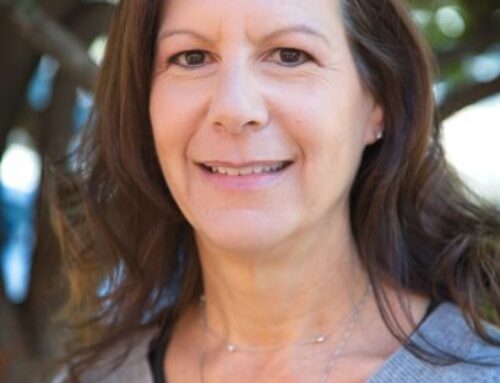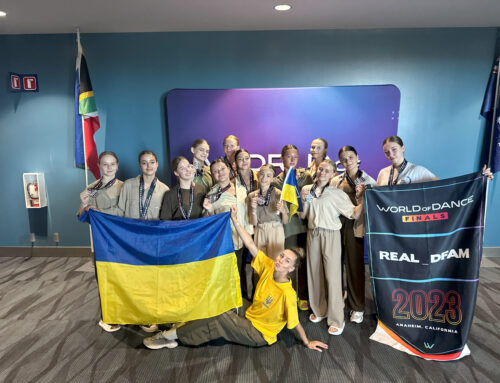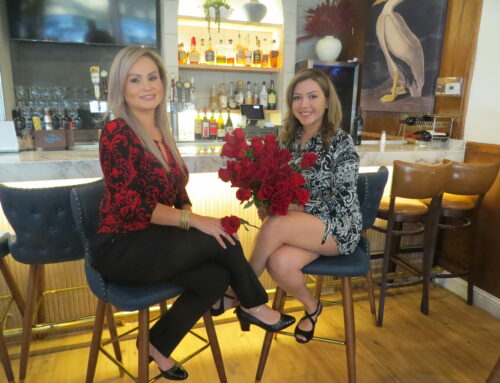Students meet Archbishop Desmond Tutu, former President, F.W. de Klerk
Published in the Sept. 18 issue of Morgan Hill Life:
By Ward Mailliard
 The Zulu word “sawubona” is a traditional African greeting, which means “I see you.” The proper response is ngikhona or “I am here.” While words can never adequately describe the impact of our recent trip to South Africa, these words do convey the spirit of the journey, which was to meet and understand the common humanity of people who have very different lives. I teach a two-year high school Values in World Thought class at Mount Madonna School. In June, I traveled with my 11th grade students to South Africa and Swaziland. We visited schools, townships and charitable organizations, and had the honor of interviewing Archbishop Desmond Tutu and former President, F.W. de Klerk.
The Zulu word “sawubona” is a traditional African greeting, which means “I see you.” The proper response is ngikhona or “I am here.” While words can never adequately describe the impact of our recent trip to South Africa, these words do convey the spirit of the journey, which was to meet and understand the common humanity of people who have very different lives. I teach a two-year high school Values in World Thought class at Mount Madonna School. In June, I traveled with my 11th grade students to South Africa and Swaziland. We visited schools, townships and charitable organizations, and had the honor of interviewing Archbishop Desmond Tutu and former President, F.W. de Klerk.
 While there were many high points, the MMS students took special pride in their wonderful presentation in the Tembisa township where, accompanied by some talented local youth, the group performed South African songs for a crowd of several hundred people. The days of rehearsals helped build lasting friendships and understanding, and there was great joy as music came alive in this truly international choir.
While there were many high points, the MMS students took special pride in their wonderful presentation in the Tembisa township where, accompanied by some talented local youth, the group performed South African songs for a crowd of several hundred people. The days of rehearsals helped build lasting friendships and understanding, and there was great joy as music came alive in this truly international choir.
 Another equally powerful experience occurred when we visited Botshabelo, a community for children infected or affected by HIV/AIDS. For several months prior to the trip students collected medical supplies, clothing, art supplies and solar gear to offer as gifts, but I know all of us agree that what we took away was far more valuable. Meeting those children who lives were deeply affected by poverty and disease helped us to understand our great privilege and the consequent obligation we have to care for and support others in need. In return we discovered something about our universal humanity and the extreme joy that comes from caring about others. The following student reflections will give some idea of the impact of this journey.
Another equally powerful experience occurred when we visited Botshabelo, a community for children infected or affected by HIV/AIDS. For several months prior to the trip students collected medical supplies, clothing, art supplies and solar gear to offer as gifts, but I know all of us agree that what we took away was far more valuable. Meeting those children who lives were deeply affected by poverty and disease helped us to understand our great privilege and the consequent obligation we have to care for and support others in need. In return we discovered something about our universal humanity and the extreme joy that comes from caring about others. The following student reflections will give some idea of the impact of this journey.
 Walking through the very prison where so many had been tortured felt surreal. How Thulani acquired the courage to return to this place where he spent his darkest years is beyond me. I am incredibly inspired by the bravery it took to retell his stories, even as he found himself struggling through the difficult emotions the memories brought If there is one thing I can take away from today’s experiences, it is the significance of hope. Thulani never stopped believing, never let go of hope, even in his darkest times. It is because of this that he stands here today, telling his story and looking down upon prison cells that now remain empty.
Walking through the very prison where so many had been tortured felt surreal. How Thulani acquired the courage to return to this place where he spent his darkest years is beyond me. I am incredibly inspired by the bravery it took to retell his stories, even as he found himself struggling through the difficult emotions the memories brought If there is one thing I can take away from today’s experiences, it is the significance of hope. Thulani never stopped believing, never let go of hope, even in his darkest times. It is because of this that he stands here today, telling his story and looking down upon prison cells that now remain empty.
– Sophie Kamkar
Peter Harris said we assume that complicated issues have complicated solutions, but many times the solution is right in front of us. He said that in order to weaken the blow of poverty and inequality, we must simply build houses and clinics and continue developing technology and infrastructure. He said that if South Africa did these things many of the nation’s problems would be solved. Harris said South Africa, unlike many other nations, has the resources needed, and therefore no excuse; complexity, he said, should not be an excuse for lack of action.
– Jay Ward
 Setting Kylay down and getting on the bus was one of the hardest things that I have ever had to do. To my surprise, it was Kylay who supported me. Before I could step on the bus, he ran back and hugged my leg and told me that I didn’t have to worry because he believed me, and he knew that I would be back to see him very soon. This was the most meaningful experience I have had so far, because usually in society it is believed that advice and knowledge are passed on from an adult, who has supposedly already lived through everything. However, this knowledge and understanding came from a 5-year-old boy who I had just met earlier that day; yet it felt like we had known each other our whole lives.
Setting Kylay down and getting on the bus was one of the hardest things that I have ever had to do. To my surprise, it was Kylay who supported me. Before I could step on the bus, he ran back and hugged my leg and told me that I didn’t have to worry because he believed me, and he knew that I would be back to see him very soon. This was the most meaningful experience I have had so far, because usually in society it is believed that advice and knowledge are passed on from an adult, who has supposedly already lived through everything. However, this knowledge and understanding came from a 5-year-old boy who I had just met earlier that day; yet it felt like we had known each other our whole lives.
– Daniel Clifton
In our interview we asked Archbishop Tutu, “What was it like when you took Nelson Mandela’s hand and stepped onto the balcony to introduce him as the new President of South Africa?” He got a big smile and said, “some things you cannot describe in words.” He went on, “But I will say that I had a conversation with God and told him, if you want to take me now it would be alright. This is enough.” There are so many moments on these journeys when I could honestly say, “this is enough.”
To read more, visit the students’ blog at: www.santacruzlive.com/blogs/mtmadonna.
Ward Mailliard is one of the founders and a member of the Board of Directors of Mount Madonna Center and Mount Madonna School. He started the Values in World Thought social studies program in 1992 to prepare students to live a meaningful life and to become creative and contributing citizens.











